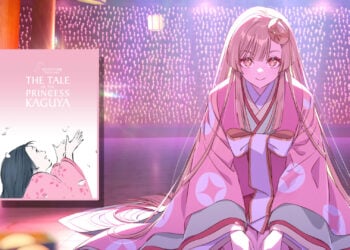The One Piece anime has unleashed an emotionally charged key visual that promises to finally unravel the tragic history of Bartholomew Kuma, one of the series’ most mysterious figures. This breathtaking artwork, released ahead of Episode 1100, depicts the former warlord in various stages of his heartbreaking journey – from a young boy bearing the weight of oppression to the mechanized enforcer we first met at Thriller Bark. The visual’s intricate symbolism and carefully placed timeline clues have sent the One Piece fandom into a frenzy of analysis and speculation.
As we stand on the precipice of what may be Kuma’s most defining arc, this guide will dissect every element of the key visual, explore how it connects to manga revelations, and examine what Eiichiro Oda’s storytelling tells us about the emotional impact this flashback will deliver. From the subtle color palette choices to the haunting imagery of Kuma’s mechanical transformation, we’ll uncover why this may become one of the most memorable arcs in One Piece history.
Table of Contents
One Piece Decoding the Visual: A Story Told in Layers
The newly released key visual operates like a narrative onion, with each layer revealing deeper truths about Kuma’s painful past. At the visual’s center stands present-day Kuma in his full mechanized form, his expressionless face belying the tragedy we now know lies beneath his mechanical shell. Radiating outward from this central image are fragmented scenes from his life – a young Kuma bearing the scars of slavery, his time as a revolutionary alongside Ivankov and Dragon, and the fateful decisions that led to his transformation into a government weapon. Most striking is the visual’s color progression, transitioning from the warm hues of his childhood (representing lost innocence) to the cold metallic tones of his present existence.

Eagle-eyed fans have spotted several manga-canon elements cleverly incorporated, including the iconic Bible Kuma always carries (now revealed to contain profound personal significance) and the snow-covered landscape of his homeland that ties directly into the God Valley incident. The composition’s most heartbreaking detail may be the barely visible tear streaks on young Kuma’s face, mirrored by rain droplets falling on his mechanized form – a poetic representation of how his humanity persisted despite his physical transformation.
From Manga to Anime: Enhancing the Emotional Impact
While manga readers already know the broad strokes of Kuma’s backstory, the anime adaptation promises to elevate this narrative to new emotional heights through carefully crafted animation techniques. The key visual hints at several anime-original enhancements, including a more detailed depiction of Kuma’s relationship with Ginny and the gradual physical changes during his cybernetic modifications. Studio Toei appears to be employing a distinctive art style for flashback sequences, using softer line work and a slightly muted color palette that differentiates these memories from present-day events.
Music will play a crucial role in this arc, with composer Kohei Tanaka reportedly creating a new character theme that incorporates mechanical sound effects morphing into traditional instrumentation – mirroring Kuma’s tragic transformation. Perhaps most exciting is how the anime might expand on certain manga moments, particularly Kuma’s decision to become a warlord and the heartbreaking final act of free will that protected the Thousand Sunny during the time skip. These additions won’t contradict Oda’s source material but rather deepen our understanding of a character whose full story has been 25 years in the making.

Timeline Implications: Connecting to the Final Saga
Kuma’s flashback doesn’t exist in isolation – it serves as a crucial bridge connecting multiple eras of One Piece history. The key visual subtly confirms this through background elements that tie into major saga events: the faint outline of God Valley in one panel, the revolutionary army’s early insignia in another, and most intriguingly, a shadowy figure that appears to be a young Saint Jaygarcia Saturn observing Kuma’s suffering.
These visual cues suggest the anime will explicitly connect Kuma’s past to current events in the Egghead arc, potentially including information even manga readers haven’t seen yet. The visual’s most tantalizing mystery lies in its depiction of Kuma holding what appears to be a young Bonney – a moment that seems to contradict established timeline information and may hint at unrevealed truths about their relationship. This flashback’s placement in the anime is particularly significant as it airs alongside the manga’s exploration of similar themes, creating a rare moment of synergy between the two mediums that enhances the emotional weight of both.
| Visual Element | Symbolism | Story Significance |
|---|---|---|
| Broken Chains | Partial freedom | Kuma’s lifelong struggle against oppression |
| Fading Colors | Loss of humanity | His gradual transformation into a cyborg |
| Snowy Landscape | God Valley | Connection to celestial dragons and Rocks |
| Bible | Emotional anchor | Last connection to his father’s teachings |
| Mechanical Hand | Forced service | The price of protecting what he loved |
Beyond the Empire: Top 10 Anime That Will Captivate Fans of Intergalactic Adventures
FAQs
Q: Will the anime show more of Kuma’s story than the manga?
A: While staying faithful to canon, the anime will expand on emotional moments and add context to manga scenes without altering core plot points.
Q: How many episodes will the Kuma flashback cover?
A: Based on the manga material and pacing, expect 4-6 episodes of focused backstory with continued thematic connections throughout Egghead.








